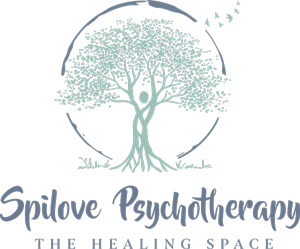While DBT has been proven to be highly effective in treating a range of mental health conditions, you don’t have to have a mental illness to benefit from these skills. In fact, learning these skills and incorporating them into your life can help all of us! Here are 3 DBT skills to help you get started.
Finding Empowerment After Trauma
Trauma impacts each of us differently, but, on the whole, we often all experience a shift afterwards. We feel helpless, fearful, sad, and maybe even numb. These post-trauma responses make us feel isolated and withdrawn from the world around us and we often feel so disconnected from our old self. We feel like we have lost integral parts of ourselves forever. But, you don’t have to lose yourself or experience the ripple effects of trauma forever. There are ways to empower yourself after trauma!
Myths About Eating Disorder Treatment Debunked
You want to be happy with yourself and let go of the shame, guilt, and hatred you have for body but are afraid of what recovery could look like. It is understandable that you are both curious and anxious about ED treatment because the ED voice is talking back to you, convincing you, that you shouldn’t. I am here to provide some insight and debunk myths that your ED voice may be telling you about eating disorder therapy.
.
What Causes You To Disconnect and Feel Lost in Your Body And What Can You Do About It?
Disembodiment is a feeling of not being present in your body, feeling unsafe or even out of control of your body. For many clients, disembodiment happens because the memories held in their body are too much to handle and disconnecting from their body is a way to keep themselves safe. Living in a state of disembodiment, though it might feel ‘normal’ and safe, will not be able to support you in the long run and can even be harmful. This state of disembodiment can stop you from living in the present moment with your body, from learning new things about who you are, and from trusting yourself.
How To Overcome Negative Body Image
We have been taught for so long to place judgments on ourselves, especially when it comes to our bodies. But it doesn’t have to have to be this way. We have the internal wisdom to manage the negative thoughts that we are having about our bodies…we just have to tap into them and be mindful of actually putting them into motion.
What the Heck is EMDR? And What Does it Feel Like?
Now you may have engaged in talk therapy before (or maybe not!) and while it may have been helpful, it never felt like you got to the root of your trauma or problem. It felt like you just talked and talked and (surprise!) talked about your trauma narrative. And while it felt somewhat helpful in the moment, you never felt free from the traumatic memories or sensations because challenging the thoughts or beliefs you had about the trauma just wasn’t enough. Sounding familiar at all? This is where EMDR is different.












